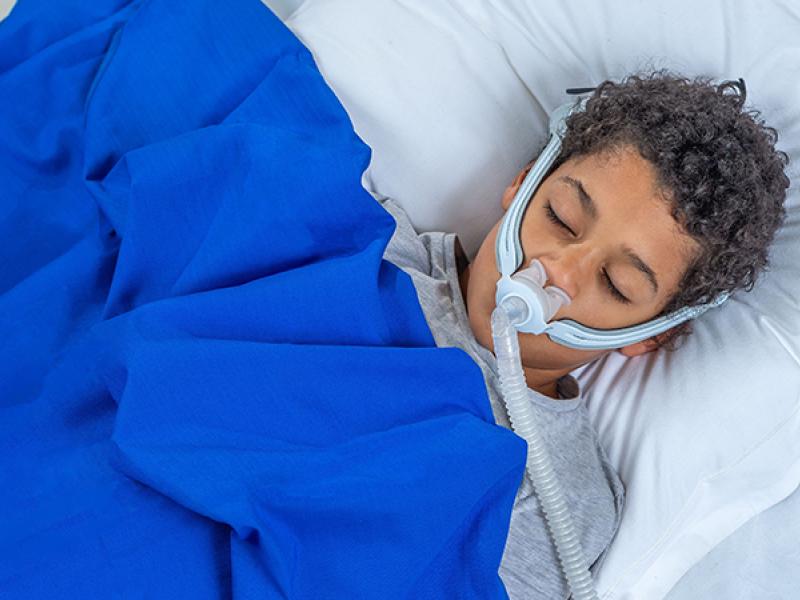Pediatrics Rotations
Neonatal Intensive Care Unit (NICU)
Residents in our Level III NICU gain excellent experiences in neonatal resuscitation and neonatal critical care as The Birthing Center-Columbia cares for many high-risk pregnancies. Additionally, our neonatal critical care transport team transfers preterm infants by ground and air to the Children's Hospital each day from all over the state of Missouri. As such, more than 500 infants are admitted to the NICU each year.
The NICU teaching service includes an attending neonatologist, neonatal nurse practitioners, one or two senior residents, and one or two interns. Neonatal nurse practitioners are present 24/7 to assist residents with taking care of neonates and performing procedures. As the NICU is a favorite rotation for medical students, there is often a fourth-year medical student on service. All residents work six days per week. We also have a non-teaching service for level II newborns that is staffed by attending neonatologists.
Pediatric Inpatient
The pediatric inpatient rotation involves the care of general pediatric and specialty care patients on our pediatric floor. There are two inpatient teaching teams, each of which includes an attending pediatric hospitalist, a senior resident, and one or two interns. Additionally, there are usually one or two fourth-year medical students and several third-year medical students on each service.
We strive for a multidisciplinary, family-centered approach to patient care. There is very close interaction with Child Life specialists, social workers, nursing staff, therapy services, dietician, and speech pathologists on daily rounds. We conduct rounds at the bedside, allowing for interaction with patients and their families.
The call schedule is divided into a day and night shift system. Inpatient teams are on call every other day, and call starts at 06:00 to 17:00. The night team consists of a senior resident and an intern who cover all overnight admissions. All residents on the pediatric floors will have four days off per month. Interns will not have any 24-hour shifts, and seniors will have one 24-hour shift every two weeks.
Pediatric Intensive Care Unit (PICU)
The PICU is dedicated to the care of critically ill children. The unit is staffed by an attending pediatric intensivist, senior resident, and usually one intern. Residents in the PICU will learn the intricacies of caring for pediatric medical, surgical, and trauma patients. There is very close interaction with the pediatric medical and surgical specialists.
Residents in the PICU will work six days per week, with duties ending at 18:00 when the overnight senior resident comes on service.
The Newborn Nursery (Well-Baby) Rotation
The newborn nursery rotation provides an excellent opportunity to become proficient in basic newborn care, newborn physical examination, circumcision, breastfeeding education and routine neonatal resuscitation. Duty hours are 06:00 to 18:00 for six days each week.
The nursery service is staffed by an attending pediatrician, nurse practitioner, and two or three residents who may be senior residents or interns. The newborn observation unit and physician work area is conveniently located close to the labor and delivery unit, allowing for close collaboration with obstetricians and the labor and delivery nursing staff. Our residents will become proficient in procedures such as circumcision and frenotomy during their newborn nursery rotation.
Medicine Rotations
Harry S. Truman VA Hospital
The VA rotation allows for the provision of general medicine and cardiac care to veterans. Accordingly, this rotation is an excellent time to gain experience managing a wide variety of common and uncommon medical conditions, as well as to gain exposure to numerous internal medicine bedside procedures. There are three inpatient teams each made up of an attending hospitalist physician, senior resident, and two interns. Additionally, there are often multiple third- and fourth-year medical students on each care team. Each team can carry up to 20 patients with each intern covering no more than 10 patients.
Daytime call at the VA is from 07:00 to 19:00 every third day. Overnight call is covered with a night float system composed of a senior resident and an intern.
Inpatient Cardiology Intensive Care Unit (CICU)
The inpatient cardiology service at University Hospital includes the management of cardiac conditions in the cardiac intensive care unit only. We have an independent cardiology service team to care for cardiology patients in the progressive care (step-down) unit and the general cardiology inpatient wards. The CICU rotation allows residents to gain experience managing acute coronary syndrome, congestive heart failure, cardiac arrhythmias, and other cardiology problems. The rotation is often a favorite of our residents because of the excellent teaching by both attending cardiologists and fellows, as well as exposure to multiple cardiac conditions.
The CICU team includes an attending cardiologist, cardiology fellow, two to three resident physicians, a nurse navigator, a case manager, and a pharmacist. The call schedule is split equally among the residents on the service and is from 07:00-19:00 on your assigned call day. Overnight call is covered by a senior resident. Days off are arranged by the residents; however, all residents will have at least one day off each week.
MU Health Care Inpatient
The inpatient medicine rotation provides an opportunity to learn the skills necessary to manage hospitalized adult patients who are admitted from our emergency department or accepted as transfers from referring hospitals from across the state of Missouri. Inpatients are accepted on to one of four general inpatient teaching services, two non-teaching attending and physician assistant service, and integrated medicine service—a combined psychiatry and medicine service covered by a dedicated attending.
The four general teaching services are staffed by an attending hospitalist physician, senior resident, and two interns. Each of these teams can carry up to 18 patients with no more than nine patients per intern. Two teaching services split call every day from 07:00 to 13:00 (designated as the “short call” team) and from 13:00 to 19:00 (designated as the “long call” team). Many of the morning admissions are split among the teaching and non-teaching services, allowing the teaching inpatient teams adequate time for rounding and resident education. Overnight admissions are handled by a night float system that includes a senior resident and two interns. An attending physician is present in-house overnight to staff admissions and to supervise all procedures.
All inpatient medicine teams focus on a multidisciplinary approach to patient care and the teams consistent of an assigned social worker, care coordinator, and pharmacist.
Medical Intensive Care Unit (MICU)
The medical intensive care unit rotation is a favorite rotation of our residents because of the exposure to multiple procedures, including but not limited to endotracheal intubation, central venous and arterial line placement, thoracentesis, paracentesis, and lumbar punctures. This hands-on rotation allows for excellent bedside teaching by attending physicians and pulmonary and critical care fellows. Residents will become proficient in the management of critically ill adults and ventilator management.
Patients admitted to the intensive care units are distributed between three attending physicians. There are three teams, and each includes a pulmonary and critical care fellow, senior residents, and interns. Each resident will work six days per week. Overnight admissions are covered by a night float system that consists of two senior residents who take call every other night.





